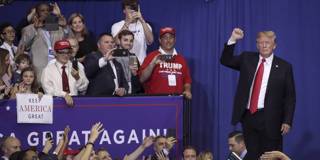Democratic politics has long been premised on politicians and voters acting in accordance with their principles, their interests, or both. But these two models seem useless for explaining today’s politics – particularly when it comes to the US Republican Party and its voters.
LONDON – Why do politicians make the choices they do? And why do voters then choose to support them? One possible answer is that voters prefer politicians whose principles they share, and will re-elect lawmakers who promote those principles while in office. Another view holds that voters support politicians who defend their economic or other interests, and will vote them out if they fail to do so.
These simple and intuitive models are at the core of modern political economy. But they seem useless for explaining today’s politics – particularly when it comes to conservatives in the United States.
Consider the politics of budget deficits in America over the last dozen years. In late 2008, as the world faced what was then the biggest economic crisis since the Great Depression, US President-elect Barack Obama’s advisers wanted a $1.8 trillion fiscal stimulus, but thought the figure utopian, despite their party’s control of both houses of Congress. In the end, the administration requested a $1.2 trillion stimulus, and Congress passed a package totaling $787 billion.

LONDON – Why do politicians make the choices they do? And why do voters then choose to support them? One possible answer is that voters prefer politicians whose principles they share, and will re-elect lawmakers who promote those principles while in office. Another view holds that voters support politicians who defend their economic or other interests, and will vote them out if they fail to do so.
These simple and intuitive models are at the core of modern political economy. But they seem useless for explaining today’s politics – particularly when it comes to conservatives in the United States.
Consider the politics of budget deficits in America over the last dozen years. In late 2008, as the world faced what was then the biggest economic crisis since the Great Depression, US President-elect Barack Obama’s advisers wanted a $1.8 trillion fiscal stimulus, but thought the figure utopian, despite their party’s control of both houses of Congress. In the end, the administration requested a $1.2 trillion stimulus, and Congress passed a package totaling $787 billion.